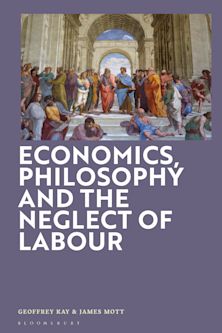- Home
- ACADEMIC
- Philosophy
- Social and Political Philosophy
- The Promise of Liberty
For information on how we process your data, read our Privacy Policy
Thank you. We will email you when this book is available to order
You must sign in to add this item to your wishlist. Please sign in or create an account
Description
Tibor Machan's central political imperative in The Promise of Liberty is one that he has found borne out by history, analysis, and personal experience: to recognize that individuals have unalienable rights to their lives, liberty, and property (which includes, of course, the pursuit of their happiness, their life agendas), that the only limitations on these rights should be others' equal rights, and that the proper function or role of the legal authorities in a country is to "secure" or protect these rights.
As Machan points out, however, that imperative cannot survive scrutiny all on its own; it needs to be grounded on other true notions, on facts about us, the world, and the nature of community life. As a result, this book touches on a wide-ranging array of topics and addresses basic issues in ethics and the possibility of moral and ethical knowledge. This book will be of interest to students of politics and political economy, as well as those interested in what kind of human community is best suited for human living as such, with all its variety and multiplicity.
Table of Contents
Chapter 2 Introduction: Why Moral Judgments Can be Objective
Chapter 3 Chapter I: Theorists v. their Theories: The Case of Agent Causation
Chapter 4 Chapter II: Ethics and its Controversial Assumptions
Chapter 5 Chapter III: Individualism & Human Success
Chapter 6 Chapter IV: Virtue, Liberty, and Private Property: Aspects of Humanist Political Economy
Chapter 7 Chapter V: Economic Analysis and the Pursuit of Liberty
Chapter 8 Chapter VI: Human Rights and Poverty
Chapter 9 Chapter VII: Rights, Values, Regulation and Health Care
Chapter 10 Chapter VIII: The Morality of Smoking
Chapter 11 Chapter IX: Philosophy, Physics and Common Sense
Chapter 12 Chapter X: The Calculation Problem & the Tragedy of the Commons
Chapter 13 Chapter XI: Government Budget Crises
Chapter 14 Chapter XII: Right to Private Property
Chapter 15 Chapter XIII: Revisiting a Critique
Chapter 16 Chapter XIV: Leo Strauss & Neo-Conservatism
Chapter 17 Chapter XV: Tocqueville & Ayn Rand
Chapter 18 Chapter XVI: Should the Constitution be Rescued
Chapter 19 Chapter XVII: Distraction of Anarchism
Chapter 20 Chapter XVIII: On Owning Intellectual Stuff
Chapter 21 Chapter XIX: Fetal Rights & Liberty
Chapter 22 Chapter XX: Speculation on Post-Communism
Chapter 23 Chapter XXI: The Right to be Wrong
Chapter 24 Chapter XXII: Reflections on Democracy
Chapter 25 Chapter XXIII: The Flaws of Stakeholder Theory
Chapter 26 Chapter XXIV: Individualism Should Respect Rights
Chapter 27 Appendix: Self-Ownership and the Lockean Proviso
Chapter 28 Postscript: Ethics East & West
Product details
| Published | 16 Apr 2009 |
|---|---|
| Format | Ebook (Epub & Mobi) |
| Edition | 1st |
| Extent | 312 |
| ISBN | 9780739130766 |
| Imprint | Lexington Books |
| Publisher | Bloomsbury Publishing |
About the contributors
Reviews
-
In this wide-ranging volume, Tibor Machan presents the reader with well-argued and well-documented philosophical considerations, arguing the case that liberty as a political ideal is both desirable and feasible. From foundational issues such as the nature of objectivity to specifics such as smoking bans and health care reform, Machan argues with both passion and rigor, in clear prose that will be of value to philosophers and lay readers alike.
Aeon J. Skoble, Bridgewater State College
-
Machan's The Promise of Liberty continues his tenacious and sharp witted exploration of the basics as well as implications of a bona fide free society, as well as of several of the issues that critics claim are certainly the undoing of such a political economy. The topics are all fascinating-among them: smoking and liberty, fetal rights, ethics and science, negative externalities, do we have the right to be wrong, is stakeholder business management just, does the famous Lockean Proviso pose the problems for private property rights as those who deploy it claim, and numerous others that are routinely rolled out as if they easily destroyed the case for liberty. As Machan shows, they do not. This is perhaps Machan's most thoroughly integrated philosophical defense of the great promise of liberty for human community affairs.
Nicholas Capaldi, Director, National Center for Business Ethics



































